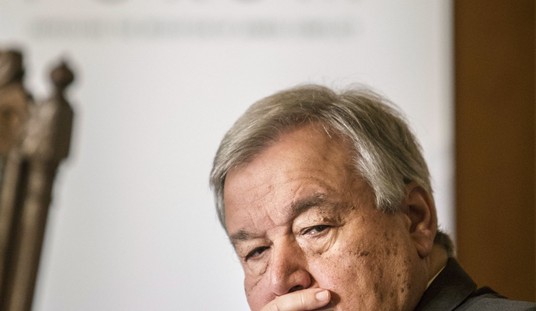
** ADVANCE FOR SUNDAY SEPT. 30 ** FILE ** Alabama’s lethal injection chamber at Holman Correctional Facility in Atmore, Ala., is pictured in this Oct. 7, 2002 file photo. Alabama has joined a growing list of Southern states facing court challenges to their method of capital punishment. A trial starting Oct. 3 will determine whether Alabama’s lethal injection procedures cause the condemned to suffer unconstitutionally cruel pain before they die and whether Alabama might have to temporarily halt executions as Florida did.(AP Photo/File)
Around 3 a.m.today the US Supreme Court removed several stays of execution in place preventing Alabama from executing Christopher Price. Price is under sentence of death for the 1991 murder of a pastor, William Lynn.
Price was convicted of the brutal slaying of Bill Lynn, a Fayette County preacher, during the course of a 1991 home robbery. Price was 19 at the time of the murder.
Lynn and his wife, Bessie, were at their Bazemore home three days before Christmas when the house’s power went out. When Bill Lynn went outside to check the powerbox, he was attacked, according to court documents. Bessie Lynn later testified that two assailants then beat her before stealing jewelry and money from their home.
Bill Lynn, who prosecutors say was cut or stabbed 38 times with a sword and dagger, died at a hospital approximately 45 minutes after the attack.
This case was very similar to in a lot of ways to a Missouri case I posted about last week. In that case, a Missouri inmate, Russell Bucklew, argued that lethal injection was liable to make him uncomfortable and possibly hurt his feelings (okay, he didn’t say that) and therefore, unless Missouri came up with a way that met his aesthetic sensibilities he shouldn’t be executed. The 5-4 majority told him that his discomfort wasn’t a huge Constitutional factor and they viewed his entire argument as an end run around the death penalty.
In this one, Price was given the opportunity to select an alternative method of execution, nitrogen hypoxia, which is billed as causing a pain-free death. As an aside, why do we keep doing this stupid bullsh**? Electrocution, lethal gas, and lethal injection were all sold as being “painless” and “humane.” How did that work out for us? He had until June to make his choice but refused to do so. Price was scheduled to die Thursday night and lower courts entered stays on Price’s behalf:
Price had argued Alabama’s lethal injection protocol has “botched” previous executions and could cause unconstitutional pain and suffering. Price instead asked to opt for death by nitrogen gas, a method Alabama approved last year but has yet to develop protocol for carrying out. The state argued Price failed to opt in for the nitrogen method in 2018 in accordance to a state statute.
In the federal district order, Judge Kristi DuBose stayed Price’s execution 60 days. DuBose wrote Alabama has until May 10, 2019 to “submit evidence in contradiction to Price’s contention that 1) the three-drug execution protocol will cause or is likely to cause him severe pain and 2) that execution by nitrogen hypoxia will significantly reduce the substantial risk of severe pain.”
Alabama appealed the 11th Circuit, was turned down, and went to the US Supreme Court. The Supreme Court removed all the stays clearing the way for Price’s execution.
Breyer was not happy:
Shortly before 9 p.m. this evening, the State filed an application to the Justice of this Court who is the Circuit Justice for the Eleventh Circuit. It was later referred to the Conference. I requested that the Court take no action until tomorrow, when the matter could be discussed at Conference. I recognized that my request would delay resolution of the application and that the State would have to obtain a new execution warrant, thus delaying the execution by 30 days. But in my judgment, that delay was warranted, at least on the facts as we have them now. During the pendency of our consideration, the State called off this evening’s scheduled execution.
The Court nevertheless grants the State’s application to vacate the stay, thus preventing full discussion among the Court’s Members. In doing so, it overrides the discretionary judgment of not one, but two lower courts. Why?
Here is why it is significant.
The stays were lifted around 3 a.m. The death warrant for Price expired at midnight so the ruling had little practical effect. The justices were aware of the expiration of the death warrant and the majority made the decision to dispose of this case immediately to send a message. That message seems to be that there is zero patience for last minute and speculative death penalty appeals and that the majority is perfectly happy overruling circuit courts if they think there is no legitimate issue.
The majority seems to have made a decision, which was basically outlined by Gorsuch in the Missouri case, that to be an Eighth Amendment violation, the method of execution has to be calculated to cause unnecessary pain or suffering. Merely inflicting pain as a collateral effect of killing the prisoner does not make a punishment unconstitutional. The large message seems to be that capital punishment is a political question and the courts should not get involved in making political judgments.
=========
=========
Like what you see? Then visit my story archive.
Follow @streiffredstate
I’m on Facebook. Drop by and join the fun there.
=========
=========














Join the conversation as a VIP Member